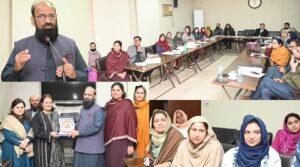The study of the World Health Organization (WHO) reveals that they can be responsible for a Dramatic reduction in life expectancy both in rich and poor countries.
For example, People living in the country with the greatest life expectancy will live on average 33 years more than those born in the country with the lowest life expectancy.
An unequal world
“Our world is unequal. Where we are born, we grow, live, live and age significantly influences our health and well -being,” said Director General Tedros Adhanom Ghebreyesus.
Health inequalities are closely related to degrees of social disadvantage and levels of discrimination.
“Health follows a social gradient through which the more private the area in which people live, minors are their income“Who said.
Inequalities are especially exacerbated in populations that face discrimination and marginalization, such as indigenous peoples, who have greater life expectations than their non -indigenous counterparts.
This is the case in high and low -income countries.
Key objectives at risk
The study is the first to publish since 2008 when the WHO WHO health determinants commission published its final report to submit objectives by 2040 to reduce the gaps between and within the countries of life expectancy, childhood and maternal mortality.
It shows that these objectives are likely to be lost, and despite the shortage of data, there is sufficient evidence to demonstrate that health inequalities are often expanding.
For example, children born in poorest countries are more likely to die before their fifth birthday than in richer countries.
In addition, the modeling shows that the life of almost two million children could annually be saved by closing the gap and improving the equity between the sectors of the poorest and most rich population within the countries with low and medium income.
In addition, although maternal mortality decreased by 40 percent between 2000 and 2023, most deaths, 94 percent, still occur in the Netherlands and low middle income.
Appeal to action
Who is asking for collective action to address economic inequality and invest in social infrastructure and universal public services.
The agency also recommends other steps, including overcoming structural discrimination and determinants and impacts of conflicts, emergencies and forced migration.




